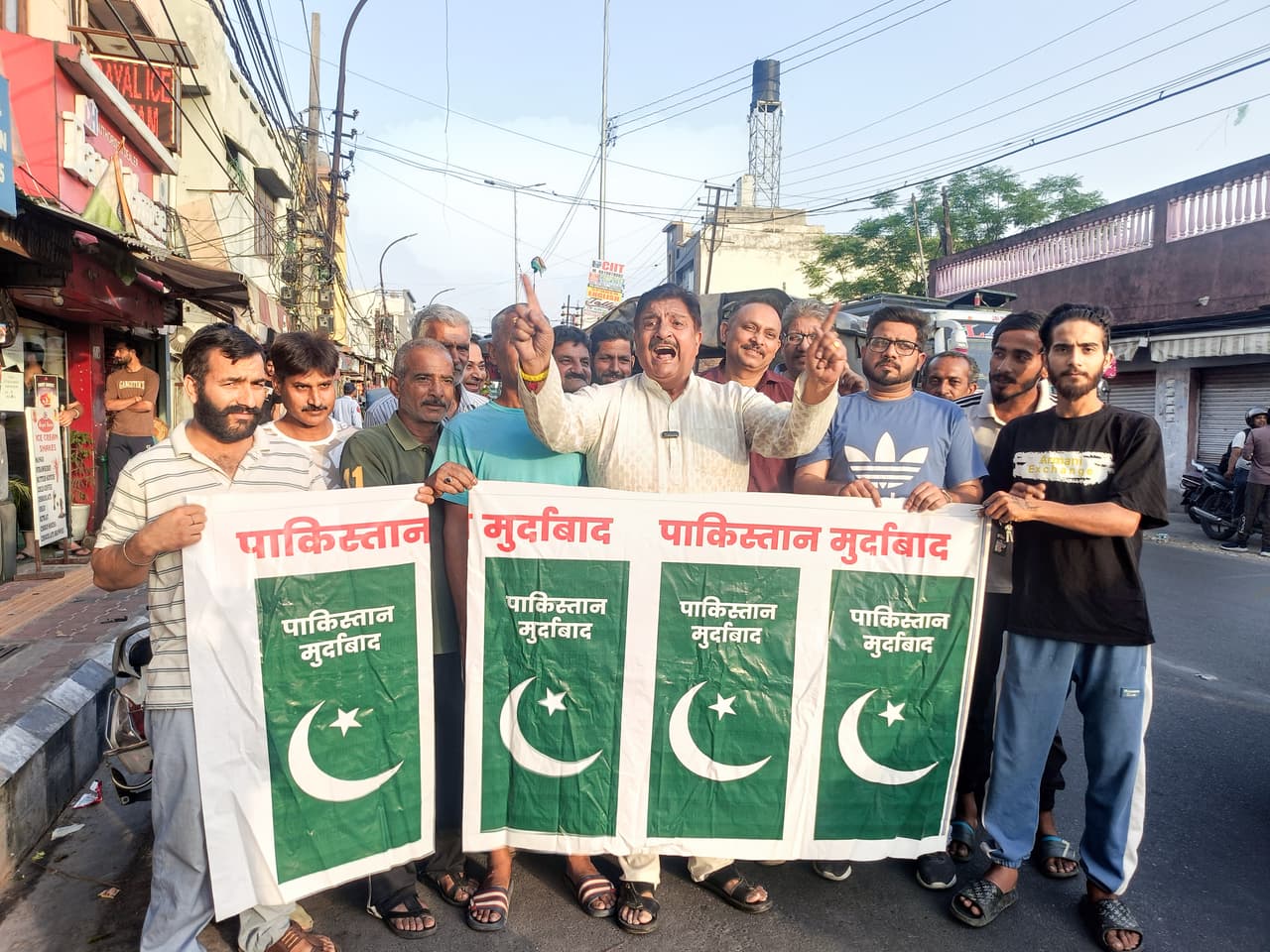Pahalgam terror attack | Shadow war in Kashmir: TRF, ISI and the cost of silence
The Resistance Front (TRF) is a Pakistan-backed terror group active in Jammu and Kashmir, responsible for targeting minorities, security forces, and disrupting peace.

TRF in Jammu and Kashmir
The Resistance Front (TRF) is a terror group that came up in Jammu and Kashmir after the major constitutional changes in 2019. While it calls itself a local and independent resistance group, Indian security agencies believe it is just another face of Pakistan’s strategy in Kashmir. According to these agencies, TRF is closely linked with Pakistan’s Inter-Services Intelligence (ISI) and old terror outfits like Lashkar-e-Taiba (LeT).

Why TRF Was Formed
TRF first appeared in October 2019. This timing wasn’t random. Pakistan was under international pressure, especially from the Financial Action Task Force (FATF), for supporting groups like LeT and Jaish-e-Mohammed (JeM). To dodge this pressure, Pakistan needed a group that didn’t look like a traditional Islamic terror outfit.
So, a new name was created — “The Resistance Front” — which sounded more secular and local. The goal was to fool international observers into thinking this was a home-grown Kashmiri movement rather than something backed from across the border.
What Indian Agencies Say
Despite its appearance, Indian intelligence reports say TRF is fully backed by Pakistan. The group gets:
- Money
- Weapons
- Training
- Orders from ISI
Its leaders have strong links to older terrorist outfits. For example:
- Sheikh Sajjad Gul – has long-standing ties with LeT and plays a major role in TRF.
- Basit Ahmed Dar – believed to manage many of TRF’s key operations.
Both are suspected to be living in safe locations outside India, likely under Pakistan’s protection.
How TRF Operates
TRF works in small, hidden teams, making it harder for Indian forces to eliminate them. It is also very active online:
- Uses encrypted messaging apps, social media, and online tools
- Spreads its ideology
- Recruits youth
- Plans attacks
- Claims responsibility after strikes
This strong digital presence helps TRF continue its work even when on-ground operations are under pressure.
Who They Target
TRF is known for targeted killings. Victims include:
- Kashmiri Pandits
- Migrant workers
- Government officials
- Tourists
These attacks are meant to:
- Create fear
- Disrupt peace
- Prevent normal life from returning in Kashmir
- Push out minorities to change the population pattern
TRF also attacks security forces and supports cross-border drug and weapons smuggling.
The Pahalgam Attack – April 22, 2025
One of TRF’s deadliest attacks happened on Tuesday, April 22, 2025, in the tourist town of Pahalgam.
- Between 26 and 28 people were killed, including foreign nationals.
- Many others were injured.
- TRF claimed responsibility.
This attack wasn’t random. It was clearly aimed at:
- Grabbing international headlines
- Hurting Kashmir’s tourism economy
- Scaring away visitors
A Chilling Personal Story
Among the victims was Manjunath Rao, a businessman from Shivamogga, Karnataka. He was on a family trip. He is the only confirmed person from Karnataka to have died.
His wife, Pallavi, survived. She told the media a heart-breaking detail:
After her husband was shot, she begged the attackers to kill her too. But one terrorist said: “No. Stay alive and deliver a message to Prime Minister Modi.”
This moment shows how the terrorists were not just spreading fear — they wanted to send a direct political message to India’s leadership, using innocent lives to do it.
Pakistan’s Role
Just days before the Pahalgam attack, Pakistan’s Army Chief, General Asim Munir, made a strong statement. He called Kashmir Pakistan’s “jugular vein” and once again supported the two-nation theory — the ideology that led to Pakistan’s creation.
Such statements act as fuel for groups like TRF. They signal that militants still have support from across the border.
What Needs to Be Done
TRF was officially declared a terrorist organization by India in 2023. But fighting TRF is not just about using guns and troops. India must also:
- Crack down on TRF’s online activities
- Expose Pakistan’s hand in global forums
- Keep up diplomatic pressure on Islamabad
Final Thoughts
The Pahalgam attack is a painful reminder of what’s at stake. As long as TRF receives external support and hateful speeches continue from across the border, peace in Kashmir will remain under threat.
India must stay vigilant, united, and fight this battle both on the ground and online to defeat this dangerous form of proxy war.
(The author Girish Linganna of this article is an award-winning Science Writer and a Defence, Aerospace & Political Analyst based in Bengaluru. He is also Director of ADD Engineering Components, India, Pvt. Ltd, a subsidiary of ADD Engineering GmbH, Germany. You can reach him, at: girishlinganna@gmail.com )
Stay updated with the Breaking News Today and Latest News from across India and around the world. Get real-time updates, in-depth analysis, and comprehensive coverage of India News, World News, Indian Defence News, Kerala News, and Karnataka News. From politics to current affairs, follow every major story as it unfolds. Get real-time updates from IMDon major cities weather forecasts, including Rain alerts, Cyclonewarnings, and temperature trends. Download the Asianet News Official App from the Android Play Store and iPhone App Store for accurate and timely news updates anytime, anywhere.

